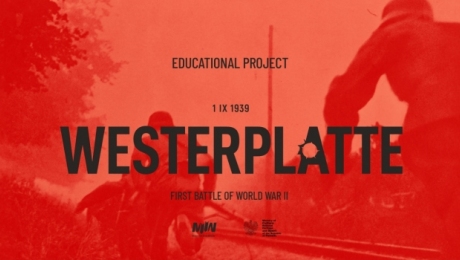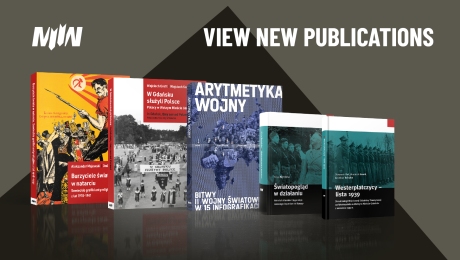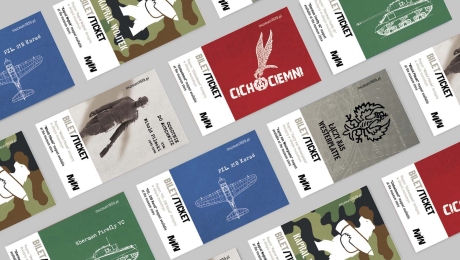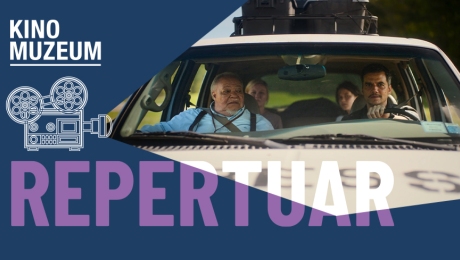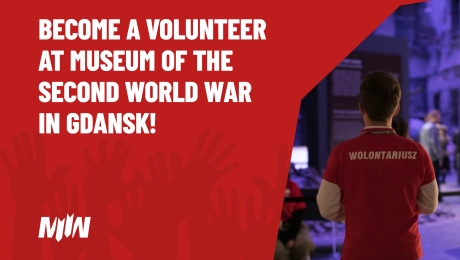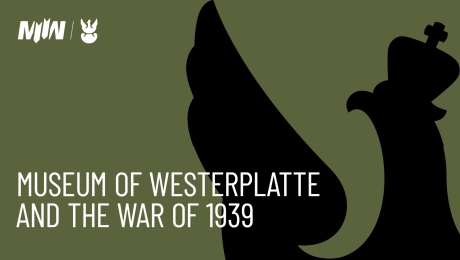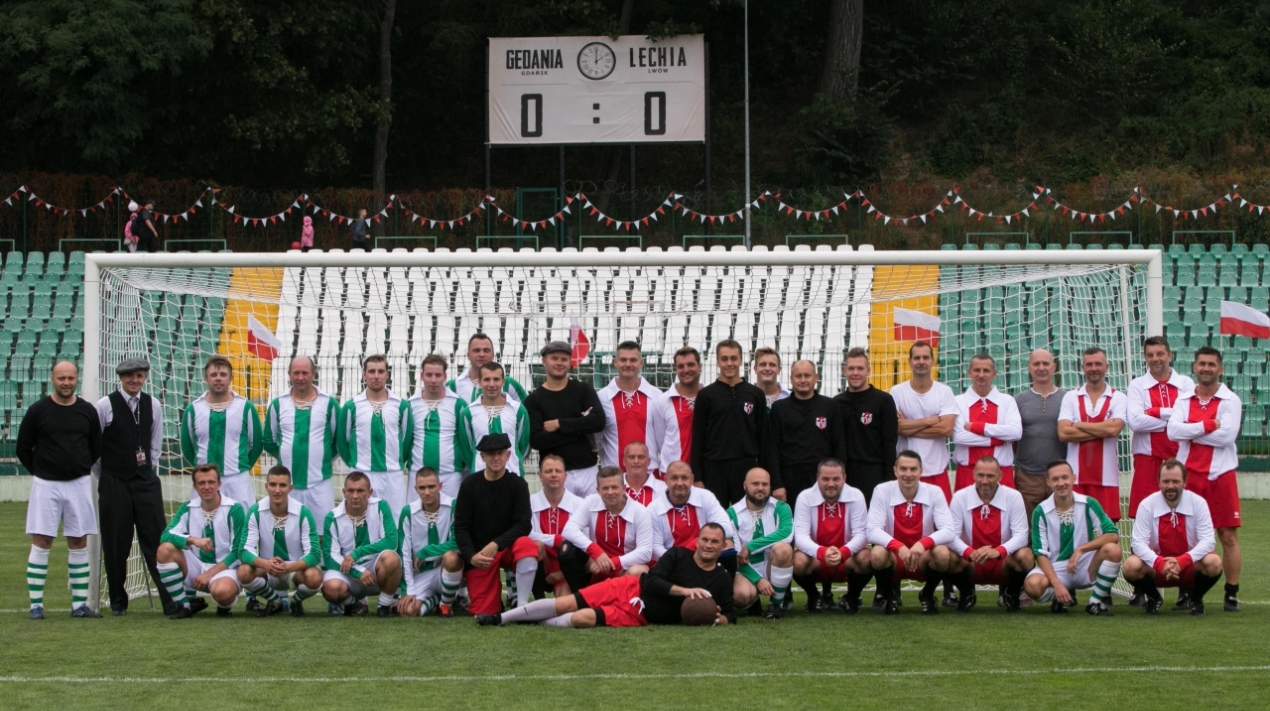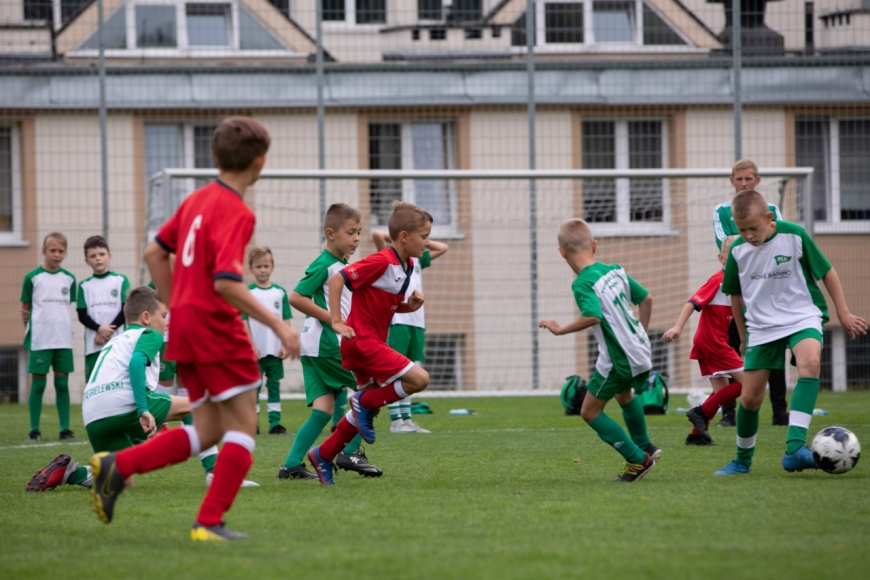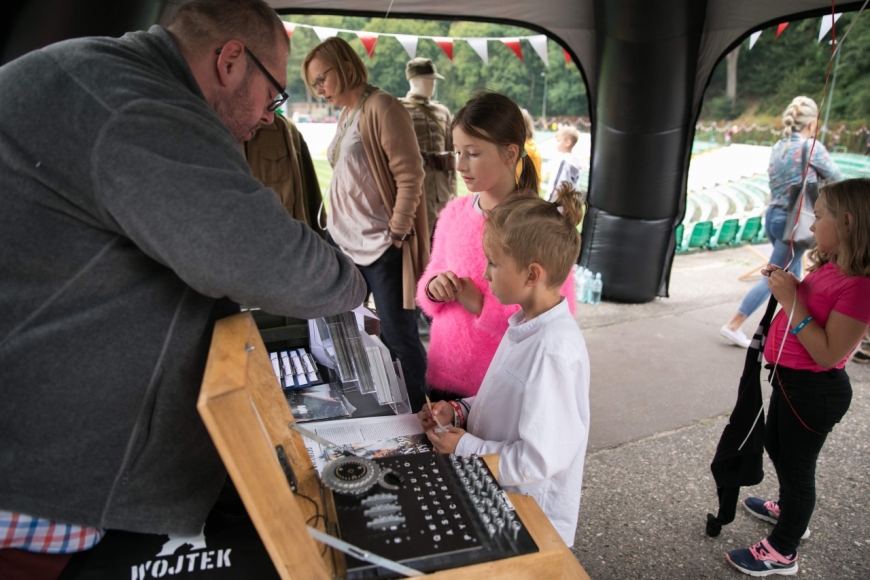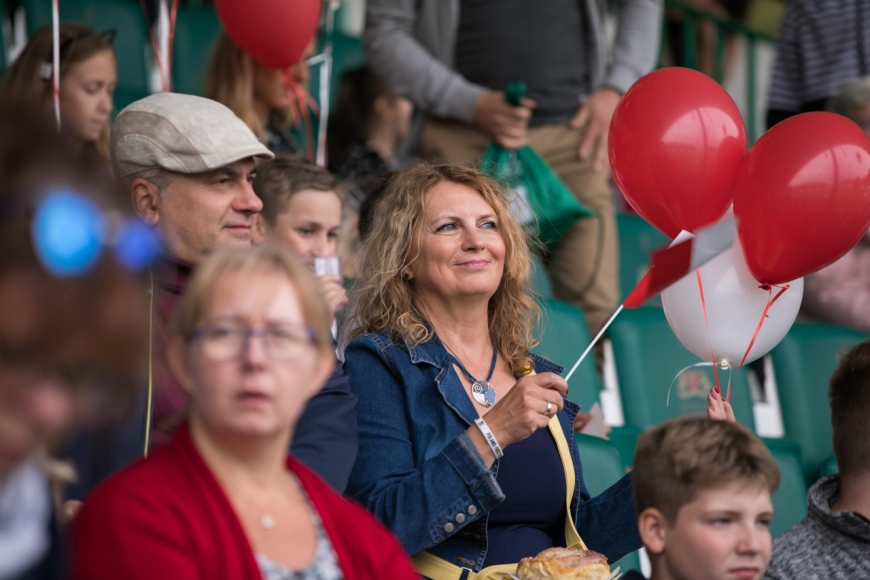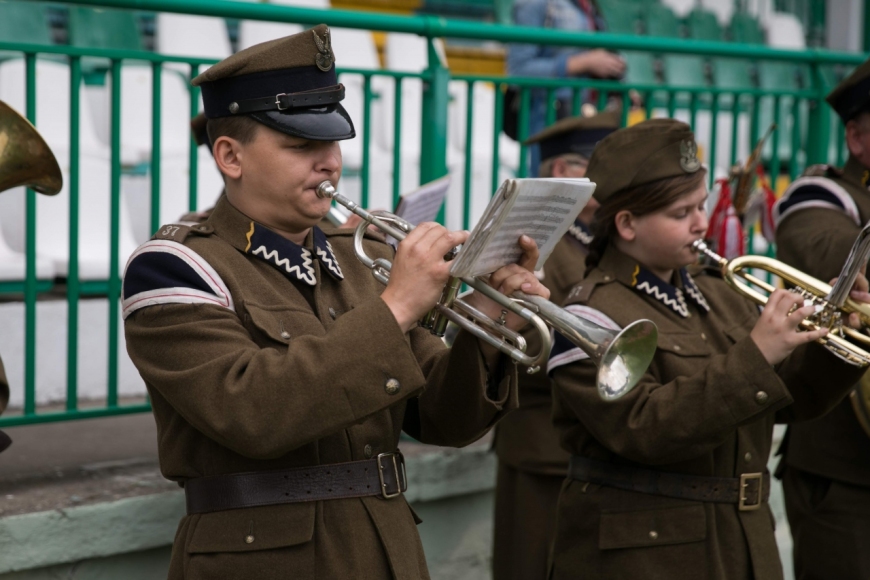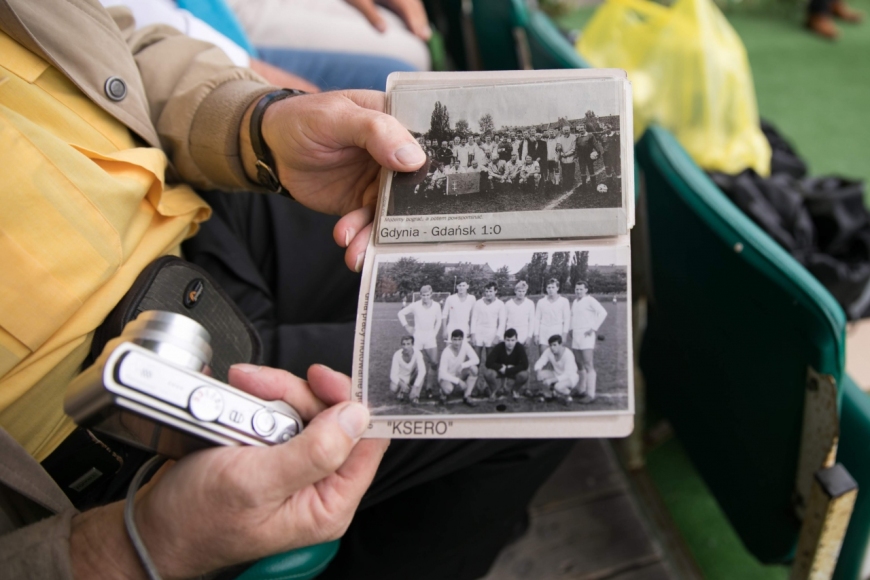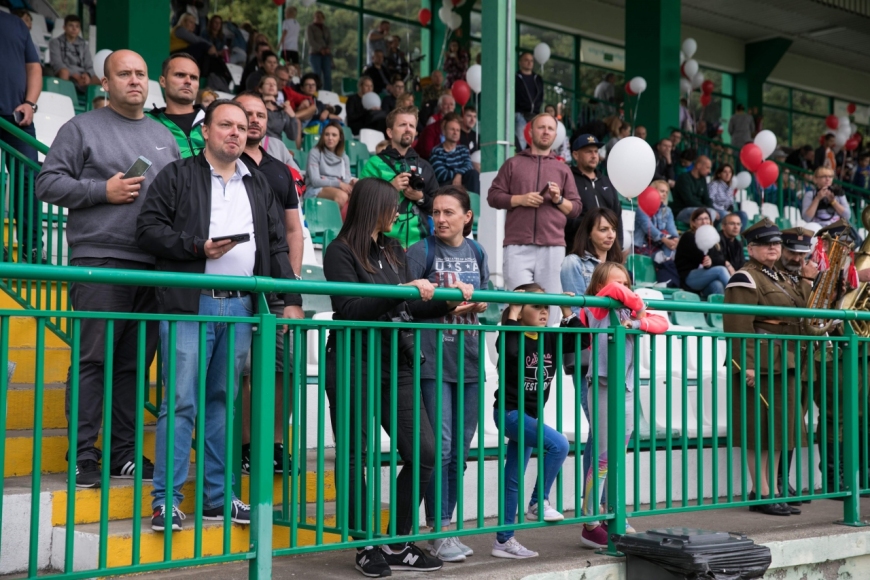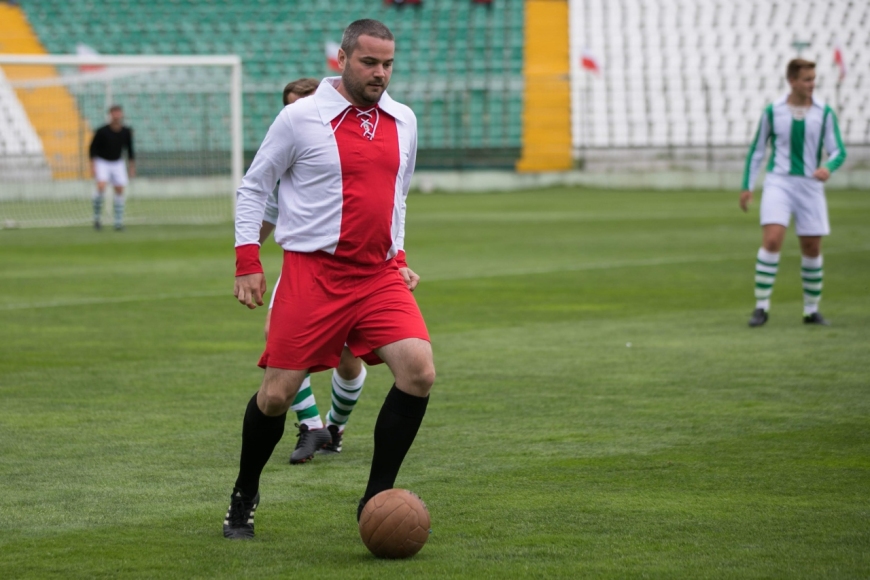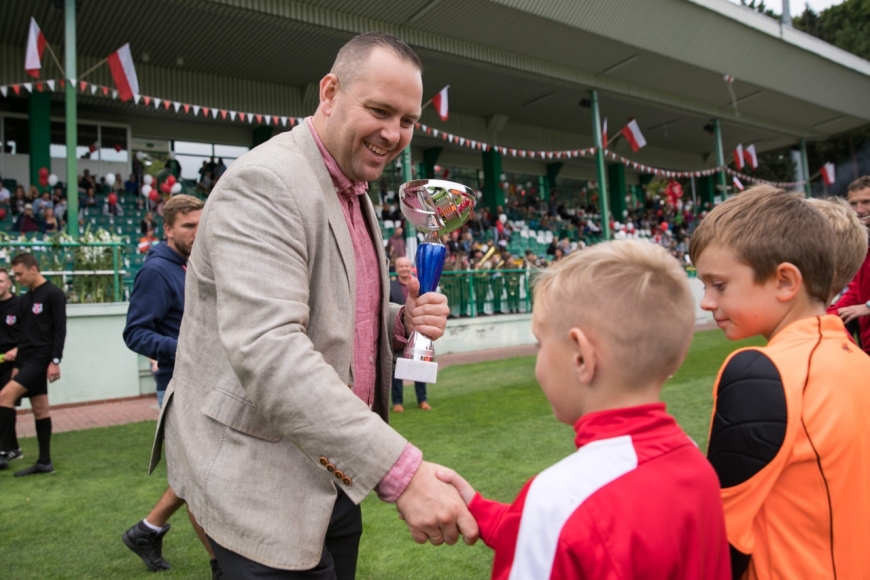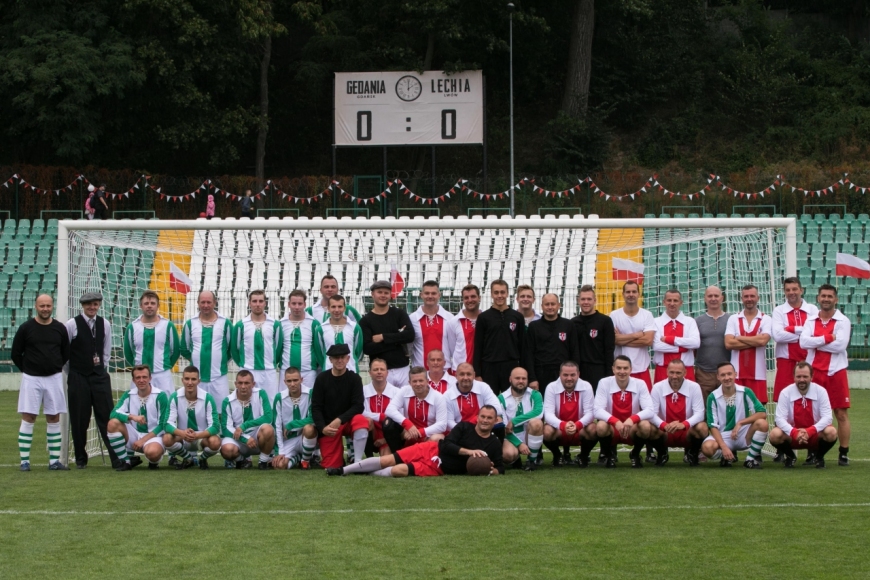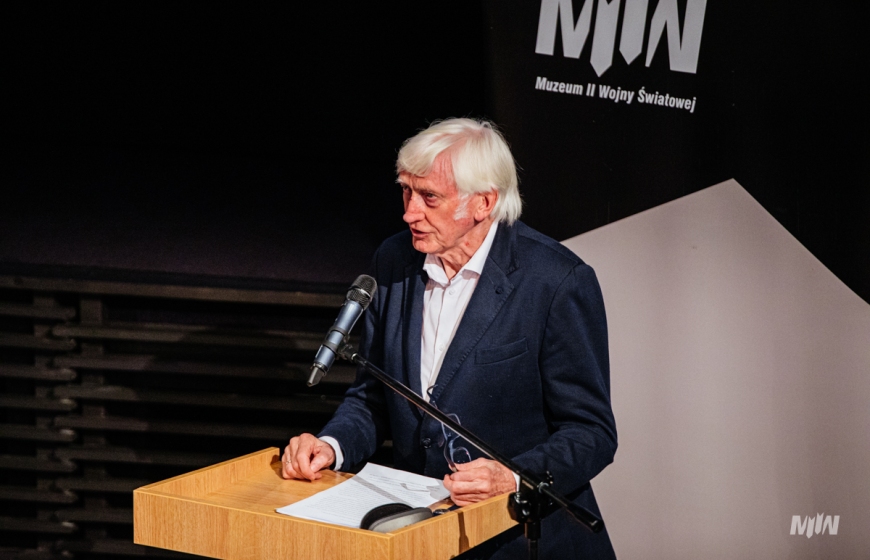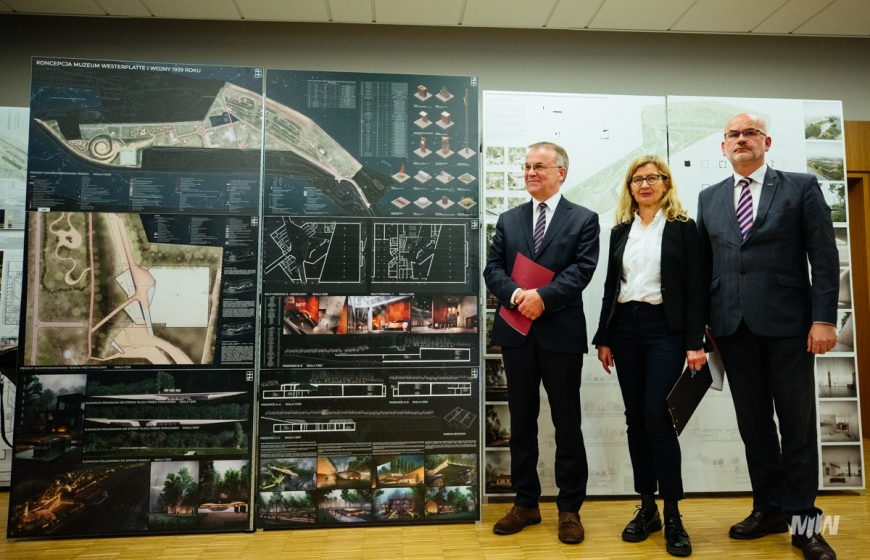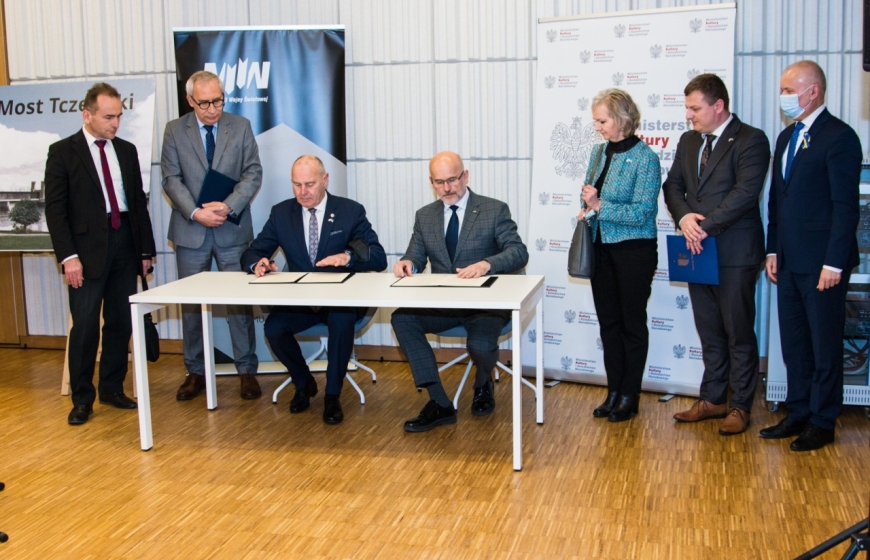“Match which Didn’t Take Place”
The Museum of the Second World War in Gdańsk paid tribute to the Polish sportsmen who had died during the Second World War with a unique family picnic.
An event “Match which Didn’t Take Place” was organised on 7 September 2019 in the stadium in Traugutt Street. Football tournament for children born in 2010 started at 10:00 a.m. on the side pitch. Patriotic family picnic started at 12:30 p.m. Specially for this occasion, the entire stadium was decorated in white and red, simultaneously referring to the 1930s style. Guests could try meals from the field kitchen and sweets. Educational Department of the Museum of the Second World War in Gdańsk prepared educational activities for the youngest guests. Children could see how the German encryption machine, Enigma, worked and listen about the heroic bear Wojtek. Additionally, the animators invited visitors to the LEGO bricks zone and popular open-air games, i.e. Hopscotch, string and Zośka.
First whistle starting the match resounded at 2:00 p.m. On the pitch there met two reenacted teams, whose history is connected with the history of Gdańsk: Gedania Gdańsk and Lechia Lvov. Gedania is a team which represented Poles in the Free City of Danzig. Every match played in its stadium provided an occasion to manifest Polish identity in the Nazi-occupied city. The team was represented by oldboys, who had been regularly representing the club a few years earlier. Meanwhile, Lechia Lvov is the oldest Polish football club. After the borders had been changed, the team’s tradition was nurtured in Gdańsk, thanks to the existence of Lechia Gdańsk. Reenactors from Retro Liga association played the part of the Lvov footballers. The stadium, in which the match was held, had existed back then, though Gedania’s stadium in Wrzeszcz would have been a more probable venue for such a meeting. The latter one is now destroyed to an extent which prevents the organisation of any match. Players who played in the match would have had no chance to meet on the pitch at the same time as they played for their clubs in different years. The line-ups were constructed in such a way as to pay tribute to Gedania and Lechia Lvov players, as well as all Polish sportsmen from the interwar period. Many of them took up arms in 1939 and gave their lives for the freedom of their Motherland. Some of them survived the war and returned to the pitch sporting their club colours already in 1945.
Right before the start of the sports event the floor was taken by Karol Nawrocki PhD, Director of the Museum of the Second World War in Gdańsk.
Today, we invite you to a match which never took place, to a match which was never there. We want to honour and remember all the Polish sportsmen, who wore the eagle not only on their hearts - on their t-shirts before the war, but also deep in their hearts and who loved Poland deeply. They were ready to defend Poland in September 1939. In the world occupied by the German Nazis, Poland was the only country where physical culture and sport were forbidden. The Germans knew that training Poles could unite and fight even better. Bogdan Tuszyński established that 1,511 Polish athletes lost their lives during the Second World War, including 59 Olympians. And we honour all of them in this exceptional way.
Then, Professor Janusz Trupinda PhD, General Director of the Castle Museum in Malbork and the researcher of Gedania Gdańsk presented Gedania’s history.
Gedania is neither the oldest, nor the biggest football club in Gdańsk, but it became a kind of a symbol, which has a special place in the history of Gdańsk. It became a platform for Poles to express their ambitions - these young boys who established the club in 1922 without any background, equipped only with their dreams - will to compete in the league and to fight for the championship of Poland. They wanted to show that there are Poles in Gdańsk. In 1922 it was already clear that Gdańsk wasn’t Polish. (...) On 1 September 1939 the club’s seat was devastated and the souvenirs destroyed. What survived were people and few artefacts kept by Gedania’s members. (...) Gedania returned in May 1945 and became the first reactivated Polish club in Gdańsk.
By the end of the first half of the match, Lechia Lvov was leading 1:0. However, Gedania turned out to be the better team in the second half and eventually won 3:1.
Retro Liga is a Polish nationwide sports and historical association assembling sports teams established on the basis of historical reenactment groups promoting pre-war sport. Football is the league's main discipline. The association’s motto is “education through sport”. Only teams which ceased to exist in 1939 can participate in the tournaments.






